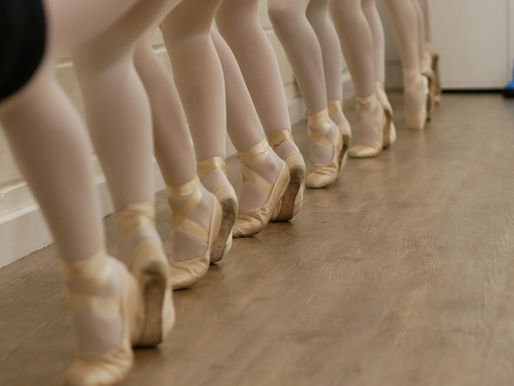top of page
Search


From Research to Real-World Impact: How MST4Life™ Translates Sport Psychology Research into Youth Mental Health Support
Mental health is increasingly recognised as a core component of performance, wellbeing, and safeguarding in sport and dance. While awareness has grown, the challenge remains in translating research into practice. MST4Life™ (Mental Skills Training for Life) is one programme that demonstrates how mental health research projects in sport psychology can be applied to support young people in meaningful, community-based ways.

SPRINT project
Sep 19, 20254 min read


Safeguarding with Heart: Creating Compassionate Cultures in Dance and Sport
Dance and sport are contexts where individuals and groups perform, often to a high standard and under both internal and external...

SPRINT project
Sep 12, 20254 min read


Sprint Smarter: A Coach’s Guide to Tackling RED-S in Elite sprinters
In the pursuit of peak performance, athletes push their bodies to the limit. But when energy intake consistently falls short of training demands, the consequences can be devastating. Relative Energy Deficiency in Sport (RED-S) is a serious condition that disrupts nearly every physiological system, impairing performance, increasing injury risk, and jeopardising long-term health. For coaches, recognizing the warning signs and addressing RED-S proactively is essential.

SPRINT project
Aug 22, 20254 min read


Listening to Dancers: Building Feedback Loops That Actually Work
This blog explores how participatory safeguarding can transform dance spaces, and how creative feedback methods can help build a culture of trust, inclusion, and shared responsibility.

SPRINT project
Aug 15, 20255 min read


Help-Seeking in Sport: What 104 Studies Reveal About Athlete Mental Health
Despite increasing recognition of mental health as a critical component of athlete wellbeing, help-seeking remains a complex and underutilised behaviour within sport contexts. A recently published scoping review in BMJ Open Sport & Exercise Medicine synthesises findings from 104 peer-reviewed studies to examine the multifaceted factors influencing athletes’ decisions to seek psychological support. The review highlights a persistent tension between the cultural norms of high-p

SPRINT project
Aug 12, 20252 min read


7 Grounding Techniques for Dancers: Staying Present in High-Stress Moments
This blog introduces you to 7 simple, body-based strategies that dancers can use to manage nerves and enhance performance readiness.

SPRINT project
Aug 8, 20254 min read


Making Safeguarding Visible in the Studio: 3 Activities Every Dance Teacher Should Try
Three creative, strengths-based activities for dance organisations to embed in their curriculum or training enviornments. As part of a whole-organisational approach to safeguarding, these activities will help to create a safe space for dancers to explore what safety means to them, and for organisations to listen, reflect, and respond.

SPRINT project
Aug 1, 20253 min read


Beyond the Research: Cultivating Researcher Well-Being and Inclusive Cultures at Conferences
Setting the Scene for Researcher Well-Being While the calibre of research presented at ICSSR was impressive, what stood out most was the...

SPRINT project
Jul 25, 20253 min read


Leveraging Strengths: A Transformative Approach to Safeguarding in Sport and Dance
Creating Safer and Inclusive Spaces Through Strengths-Based Practices More than just policies Safeguarding in sport and dance is more...

SPRINT project
Jul 11, 20254 min read


Thank You for Supporting the 2nd National Survey on Safeguarding in Dance
As the 2nd National Survey of Safeguarding and Abuse Prevention in Dance officially closes, we want to extend a heartfelt thank you to everyone who took part, whether by completing the survey, sharing it with colleagues, or helping to raise awareness across the UK dance sector.

SPRINT project
Jul 1, 20252 min read


Safeguarding in Dance and Sport: Insights from the ICSSR Conference in Québec City
Safeguarding in dance and sport is a growing area of academic and professional concern, demanding nuanced, evidence-based approaches. This blog post offers a brief overview of the SPRINT team’s contributions and highlights from the inaugural International Conference on Sport and Social Research (ICSSR) held June 18-20 in Québec City, Canada.

SPRINT project
Jun 27, 20253 min read
bottom of page